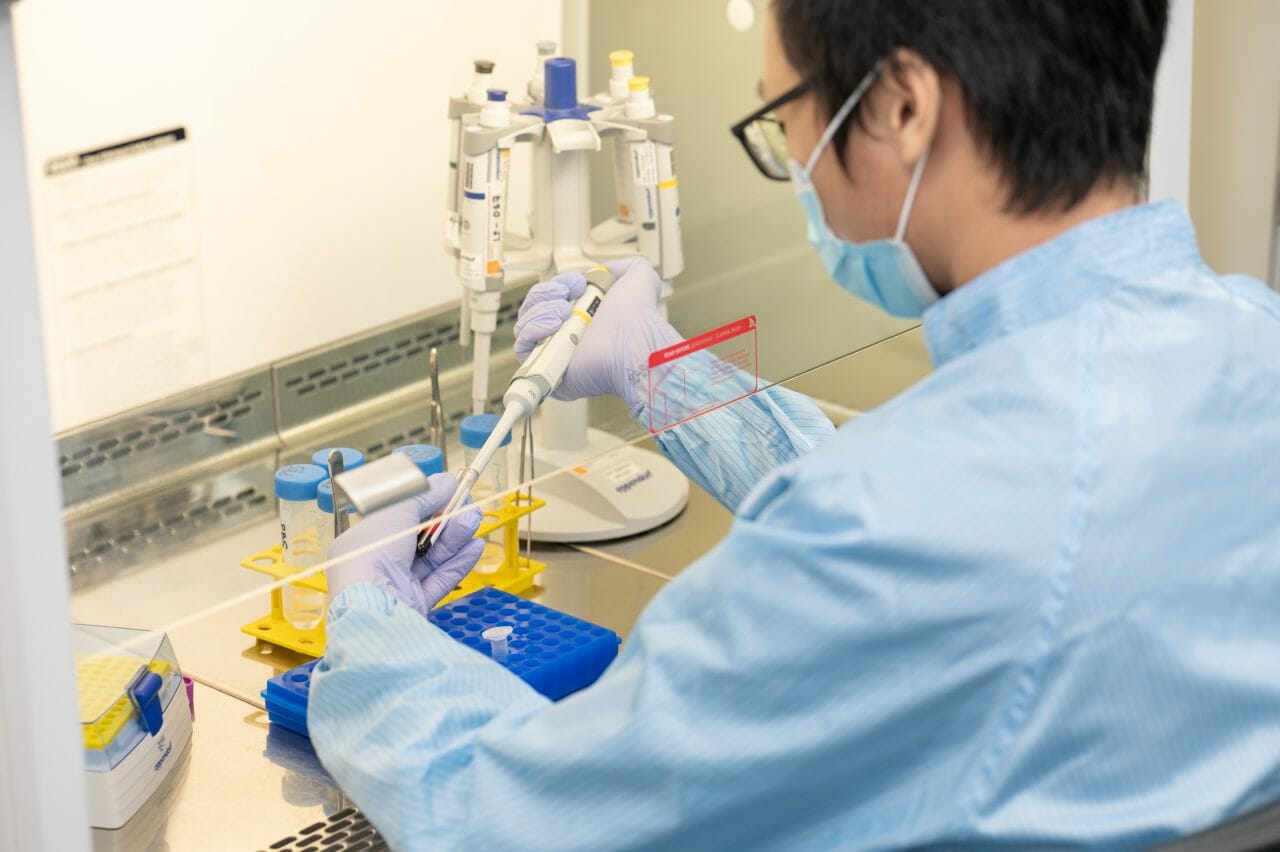MGRC: A Time for Exponential Growth
Malaysian Genomics Resources Centre (MGRC) has been hitting the headlines of corporate news for the past few months as a listed company which has delved into a number of corporate ventures.
Correspondingly, MGRC Executive Director Azri Azerai has been under the limelight lately.
Asked on his numerous critics with the advent of MGRC advancing forward and of being at such a young age, many seem to be concerned about what he could bring to the table.
Speaking to Business Today exclusively recently, Azri candidly said: “I am here to help you to achieve a better version of you.”
“I learnt you need to be credible and muster support within the company before you start trying to become an agent for change. If someone thinks he is going to make change happen, simply by force of personality or position or intellect, the person would be simple-minded to think as such. At this point, I must credit my team for the teamwork and support they have shown in forging ahead.”
Malaysian Genomics has been in the news recently highlighting the ventures among them being the tie-up with AirAsia, winning the Covid-19 surveillance contract with MOH and the acquisition of 51% stake of Aquahealth Sdn Bhd to operate a kidney dialysis centre as well as expansion into Saudi Arabia.
Asked on the business expansion strategy for MGRC, Azri said they employ a four-prong strategy focussed on growing the customer base for the existing products and services offered. This includes developing B2C channels; expand into new territories across ASEAN and into MENA (Middle East and Africa); acquiring new assets to give us access into new market segments, new territories and new technologies; diversification our healthcare interests in clinical testing and therapeutics, looking into specialised healthcare services, device manufacturing and healthcare AI and Big Data.
To the question whether MGRC is expecting more tie-ups or collaborations in future, Azri replied: “Yes, we have been busy evaluating prospective partners and their offerings in Malaysia an overseas. We hope to announce these soon. These collaborations will see the expansion of our product and service portfolio as well as our reach into new territories, and new market segments.”
There has been much being said in the news across the globe on genetic screenings. How has genetic screenings grown in the Malaysian market and are there any data which can be shared?”
“The market is much more robust than it was when we started offering these tests 10 years ago, Azri said, adding, today, we have B2B partners using our genetic screening tests to offer to their customers.
He said MRGC has personalised fitness programmes led by Rinani Genotec which offers sports-based testing, and customised supplementation. This is supported by Unique Remedy, a company which designs an all-in-one supplement based on genetic screening results.
Asked on MGRC’s move into CAR T-Cell cancer immunotherapy and what it entails, especially on how would the company chart its growth on this service and how does genome sequencing and analysis complement this service?”
Azri explained: “CAR T-Cell therapy is a new form of immunotherapy. It works by improving a patient’s T-cells to identify and fight cancer cells. It is a personalised treatment, so each therapy is designed for a specific patient. Genetic testing is one of the methods used to determine whether a patient is a suitable candidate for CAR T-cell therapy. We see the potential of this as it is a huge market.”
“The global CAR-T cell therapy market is expected to generate revenue of USD8.7 billion by 2025,” he said.
“In the US and Europe, each CAR T-Cell therapy costs about USD400,000. We produce the same therapy at our BSL2 cGMP facility in Malaysia for USD40,000! Yes, it’s a huge difference! And, this puts us at an advantage.
Azri added they are now marketing the therapy to specialists in Malaysia, Singapore, Brunei, Indonesia, Thailand, Vietnam, Cambodia and Laos.
Azri was then asked as to what share does Dtect have in the domestic market? How much revenue does Dtect bring into MGRC? And, what kind of revenue do you expect in the coming year?”
He said: “MGRC already started developing its first Dtect genetic screening profiles back in 2012. Today, there are 15 distinct Dtect profiles which screen for genetic risks covering a variety of medical fields such as cardiovascular diseases, metabolic diseases, types of cancer, to health traits such as nutrition and fitness.”
He added, in 2020 and the earlier part of 2021, there was an overall slowdown in the demand for genetic screening. This changed in the second half of 2021, where demand increased for Dtect. Today, they are back to pre-pandemic volume.
On the progress update on MGRC’s investment into Aquahealth to operate kidney dialysis centres in Selangor, Azri said: “We are in the midst of planning and have submitted the documents for renovation approval with MOH, adding, tentatively, they expect it to be fully operational by first or the second quarter of 2023 as the renovation and final operating approvals might take 6 to 9 months.”
Asked on genome sequencing and analysis playing a critical role in not just human health but also in research for flora and fauna. How does MGRC intend to drive these services and how do these services complement genetic testing?
“Since 2004, we have been providing contract research activities in genomics and bioinformatics for customers in the plantation, agriculture, aquaculture, and industrial biotech, as well as in healthcare.
“These genetic tests can also be designed to detect genetic markers in plants, marine species, environmental samples and what not. So, you see, the experience gained from all that contract research helped us to design and develop genetic screening services such as Dtech and other clinical tests,” Azri explained.
The company focused on a B2B approach and is now taking a B2C approach through the collaboration with AirAsia. What prompted the change? Will this be the new focus? Will B2B opportunities still be a significant contributor to the genetic testing business? What are the operational changes needed to focus on B2C opportunities? What kind of revenue does the company foresee on this?
“When I came on board, I was excited to see Malaysia Genomics having a fabulous range of products and services. But what was lacking was a B2C channel. We are pivoting towards offering our products and services directly to the public because we see potential growth in the area. People have become more health conscious on various issues now as they are better informed and this presents us with an opportunity for growth.
Azri added, B2C, to us means new partnerships with companies which own consumer channels. Do expect lots of upcoming announcements in this area. Having said that, we must emphasise that we will still perform as a B2B channel primarily. B2C is an addition, not a replacement,” added Azri
ReplyForward










